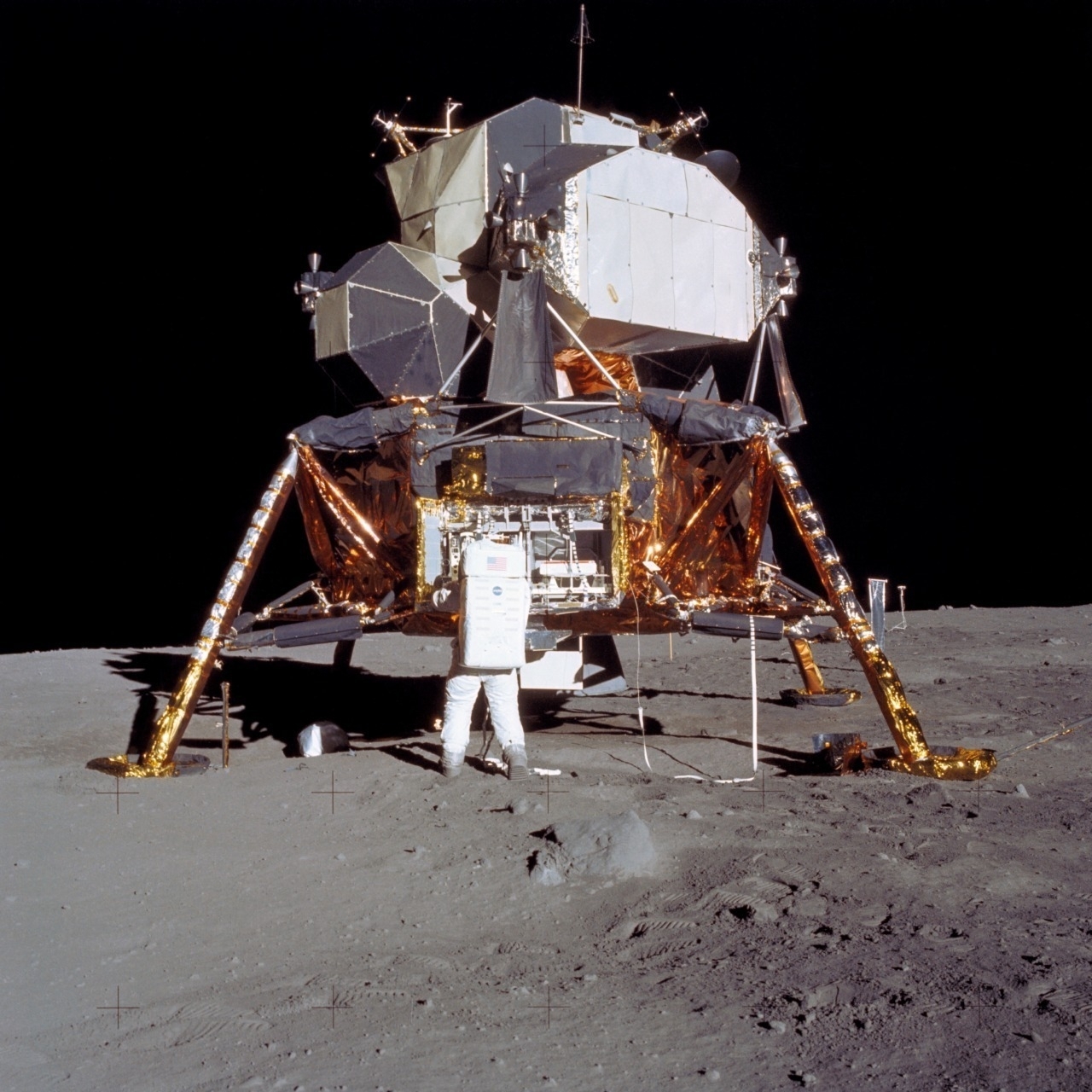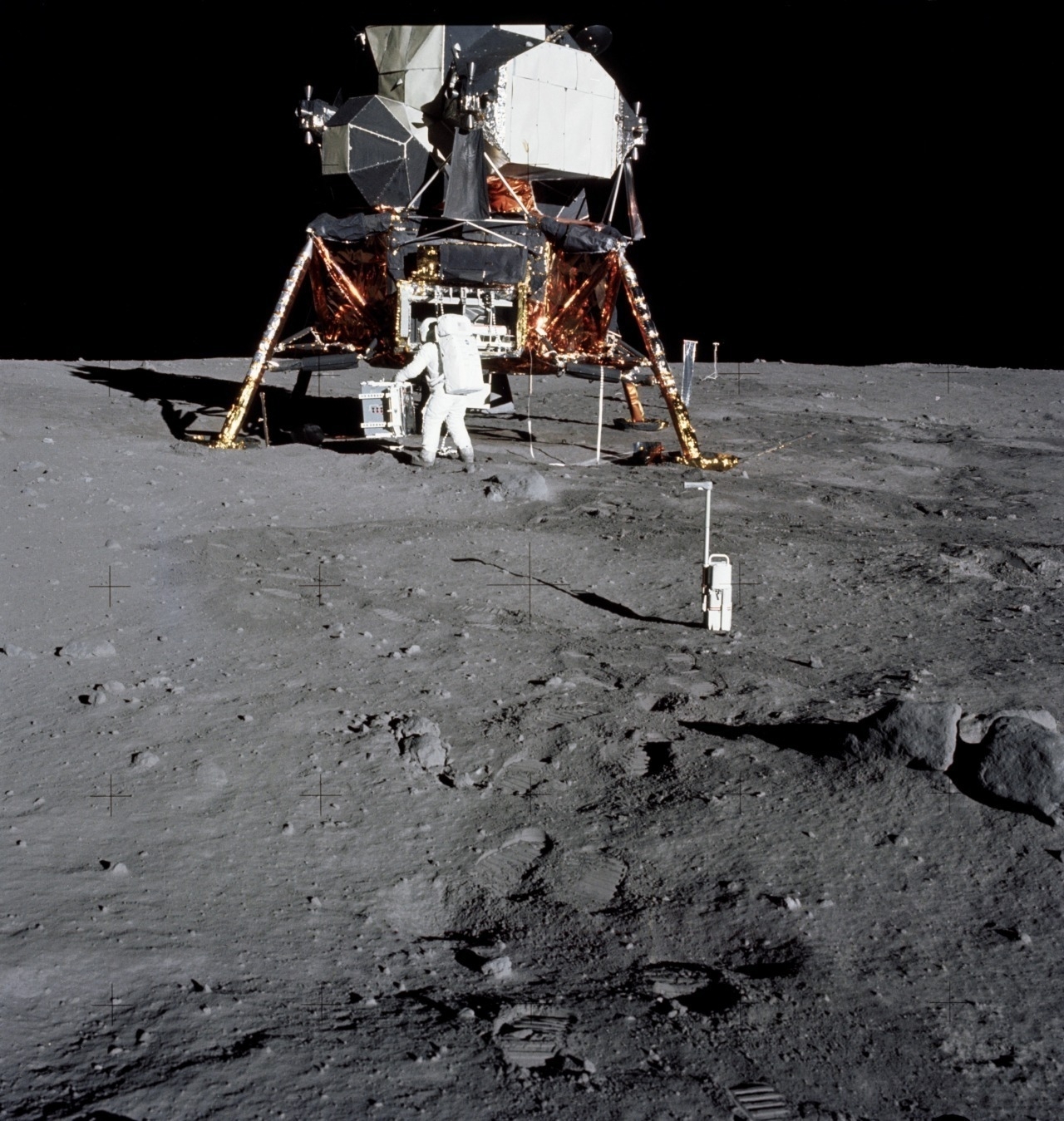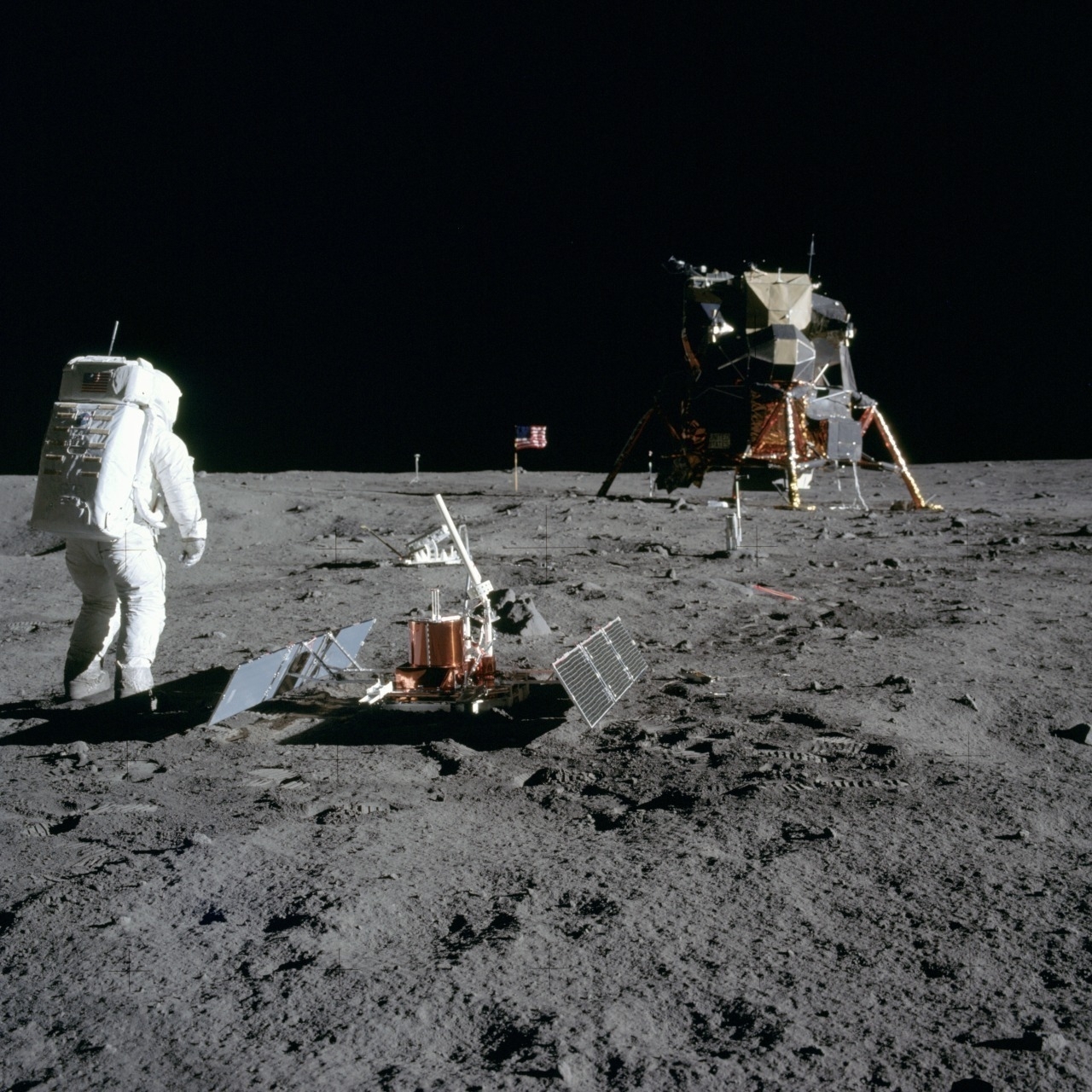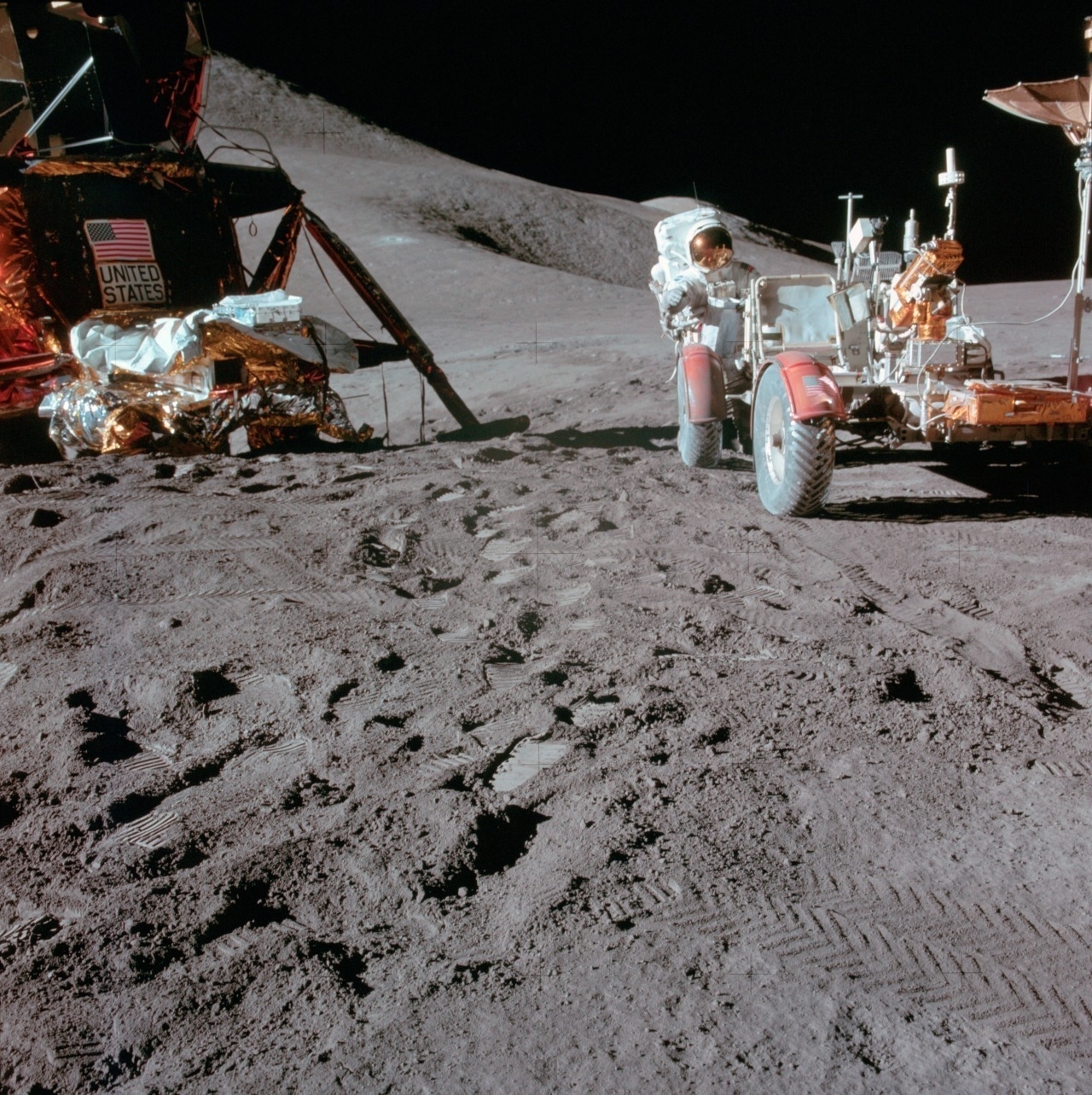history
July 20, 1969 — Apollo 11 astronaut Buzz Aldrin at work on the Moon, photographed by Neil Armstrong, who can be seen reflected in a couple of the images.
(NASA)








[gallery]
A Pictorial History of the Pocket Knife, From 600 BC to Present
As a long-time, every-day carrier of a pocket knife, this is pretty neat.

The Moon, December 11, 1972. Apollo 17 astronaut Gene Cernan with the Earth above him. (NASA)

The Apollo 16 command module shown before splashdown on Apr. 27,1972, after completing a lunar landing mission.
Credit: NASAFrom Space.com

As parents, we can have no joy, knowing that this government is not sufficiently lasting to ensure any thing which we may bequeath to posterity: And by a plain method of argument, as we are running the next generation into debt, we ought to do the work of it, otherwise we use them meanly and pitifully. In order to discover the line of our duty rightly, we should take our children in our hand, and fix our station a few years farther into life; that eminence will present a prospect, which a few present fears and prejudices conceal from our sight.
–Thomas Paine, Common Sense, 1776
Not enslaving future generations to debt: common sense in 1776, unheard of in 2013.
LSUverse: The Origin of LSU's Mascot
LSUverse: The Origin of LSU's Mascot
Way back in the fall of 1896, coach A.W. Jeardeau’s LSU football team posted a perfect 6-0 record, and it was in that pigskin campaign that LSU first adopted its nickname, Tigers.
“Tigers” seemed a logical choice since most collegiate teams in that year bore the names of ferocious animals,…
American youth, never forget
"Let the American youth never forget, that they possess a noble inheritance, bought by the toils, and sufferings, and blood of their ancestors; and capacity, if wisely improved, and faithfully guarded, of transmitting to their latest posterity all the substantial blessings of life, the peaceful enjoyment of liberty, property, religion, and independence." -- Joseph Story (Commentaries on the Constitution, 1833)
Failing to learn from history
"But ambitious encroachments of the federal government, on the authority of the State governments, would not excite the opposition of a single State, or of a few States only. They would be signals of general alarm... But what degree of madness could ever drive the federal government to such an extremity." --James Madison, Federalist No. 46 I wonder what our fourth president, a strict constitutional constructionist, would think of us now.
Federal, not national
"Each State, in ratifying the Constitution, is considered as a sovereign body, independent of all others, and only to be bound by its own voluntary act. In this relation, then, the new Constitution will, if established, be a FEDERAL, and not a NATIONAL constitution." --James Madison, Federalist No. 39 Oh, what of our history we have forgotten.
Hurtling Down the Road to Serfdom
Government is taking us a long way down the Road to Serfdom. That doesn't just mean that more of us must work for the government. It means that we are changing from independent, self-responsible people into a submissive flock. The welfare state kills the creative spirit.
F.A. Hayek, an Austrian economist living in Britain, wrote "The Road to Serfdom" in 1944 as a warning that central economic planning would extinguish freedom.
[...]
Hayek meant that governments can't plan economies without planning people's lives. After all, an economy is just individuals engaging in exchanges. The scientific-sounding language of President Obama's economic planning hides the fact that people must shelve their own plans in favor of government's single plan.
At the beginning of "The Road to Serfdom," Hayek acknowledges that mere material wealth is not all that's at stake when the government controls our lives: "The most important change ... is a psychological change, an alteration in the character of the people."
This shouldn't be controversial. If government relieves us of the responsibility of living by bailing us out, character will atrophy. The welfare state, however good its intentions of creating material equality, can't help but make us dependent. That changes the psychology of society.
According to the Tax Foundation, 60 percent of the population now gets more in government benefits than it pays in taxes. What does it say about a society in which more than half the people live at the expense of the rest?
Washington's Birthday
Surely it is a sign of Providence that my best friend shares a birthday celebration with our first President. The Patriot Post:
As friend of The Patriot, Matthew Spalding, a Heritage Foundation scholar, reminds: "Although it was celebrated as early as 1778, and by the early 19th Century was second only to the Fourth of July as a patriotic holiday, Congress did not officially recognize Washington's Birthday as a national holiday until 1870. The Monday Holiday Law in 1968 -- applied to executive branch departments and agencies by Richard Nixon's Executive Order 11582 in 1971 -- moved the holiday from February 22 to the third Monday in February. Section 6103 of Title 5, United States Code, currently designates that legal federal holiday as 'Washington's Birthday.' Contrary to popular opinion, no action by Congress or order by any President has changed 'Washington's Birthday' to 'Presidents' Day.'"
In honor of and with due respect for our first and (we believe) greatest president, arguably our nation's most outstanding Patriot, we include two quotes from George Washington which best embody his dedication to liberty and God. The first from his First Inaugural Address, April 30, 1789, and the second from his Farewell Address, September 19, 1796.
"The preservation of the sacred fire of liberty, and the destiny of the republican model of government, are justly considered as deeply, perhaps as finally, staked on the experiment entrusted to the hands of the American People."
"Of all the dispositions and habits which lead to political prosperity, Religion and morality are indispensable supports. In vain would that man claim the tribute of Patriotism, who should labor to subvert these great Pillars of human happiness -- these firmest props of the duties of Men and citizens." [Emphasis added. --R]
A wise and frugal government
"[A] wise and frugal government ... shall restrain men from injuring one another, shall leave them otherwise free to regulate their own pursuits of industry and improvement, and shall not take from the mouth of labor the bread it has earned. This is the sum of good government." --Thomas Jefferson Oh well...
The Year of Revolution
November 1989 was the most liberating month of arguably the most liberating year in human history, yet two decades later the country that led the Cold War coalition against communism seems less interested than ever in commemorating, let alone processing the lessons from, the collapse of its longtime foe. At a time that fairly cries out for historical perspective about the follies of central planning, Americans are ignoring the fundamental conflict of the postwar world, and instead leapfrogging back to what Steve Forbes describes in this issue as the “Jurassic Park statism” of the 1930s.
[...]
The consensus Year of Revolution for most of our lifetimes has been 1968, with its political assassinations, its Parisian protests, and a youth-culture rebellion that the baby boomers will never tire of telling us about. But as the preeminent modern Central European historian Timothy Garton Ash wrote in a 2008 essay, 1989 "ended communism in Europe, the Soviet empire, the division of Germany, and an ideological and geopolitical struggle...that had shaped world politics for half a century. It was, in its geopolitical results, as big as 1945 or 1914. By comparison, '68 was a molehill."
Economic Myths and Irrelevancy
There is no more reliable rule than the 95 percent rule: 95 percent of what you read about economics and finance is either wrong or irrelevant.
[...]
[T]he most repeated statement about the cause of the U.S. Great Depression is that it was caused by the October 1929 stock market crash. How could that be? By April 1930, the stock market had recovered to its pre-crash level. What is not taught in history books is the Great Depression was caused by a massive government failure. The most important part of that failure were the actions by the Federal Reserve Bank that led to the contraction of the money supply by 25 percent. Then, in the name of saving jobs, Congress enacted the Smoot-Hawley Act in June 1930, which increased U.S. tariffs by more than 50 percent. Other nations retaliated and world trade collapsed. U.S. unemployment rose from 8 percent in 1930 to 25 percent in 1933. In 1932, the Herbert Hoover administration and a Democratic Congress imposed the largest tax increase in U.S. history, raising the top tax rate on income from 25 percent to 63 percent. The Roosevelt administration followed these destructive policies with New Deal legislation that massively regulated the economy and extended the Great Depression to after World War II.
Have today's politicians and their economic advisers learned anything from yesteryear's policy that turned what would have been a short, sharp downturn in the economy into a 16-year affair? The answer is very little.





